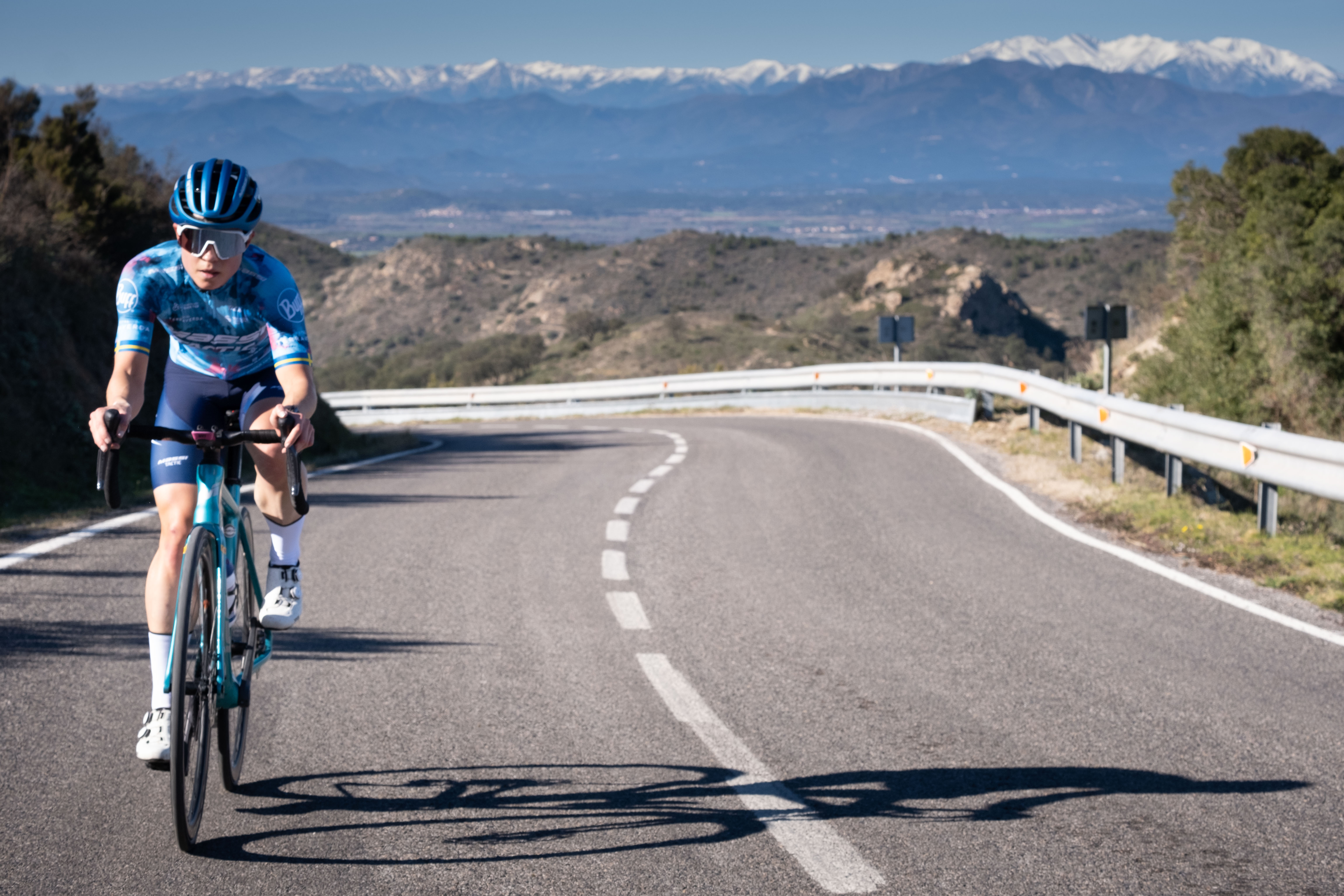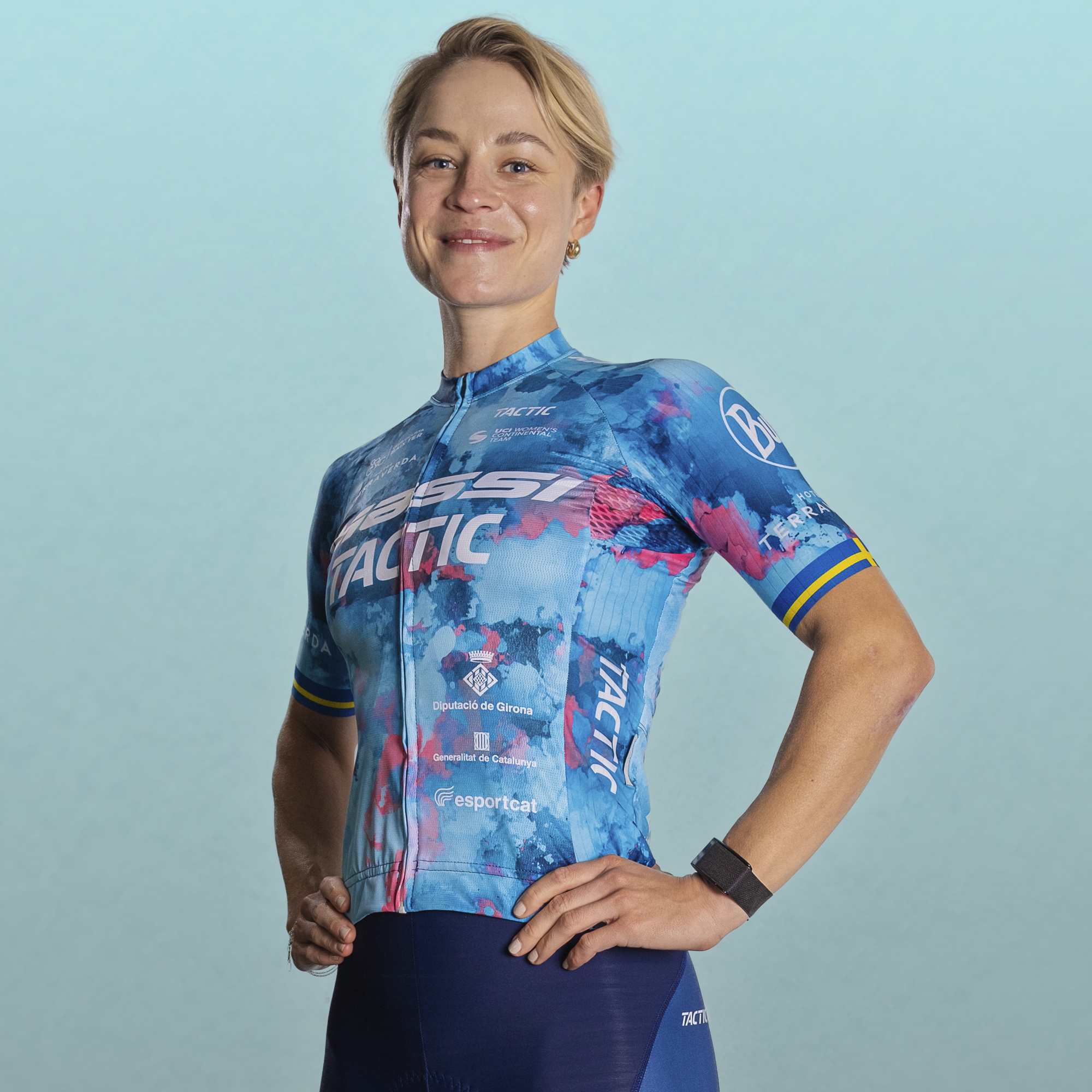'Cycling is really hard, but ballet is even harder' — the Swedish rider who was once a ballerina
Nathalie Eklund on her journey from ballet pumps to bike shoes


The latest race content, interviews, features, reviews and expert buying guides, direct to your inbox!
You are now subscribed
Your newsletter sign-up was successful
In Edgar Degas' paintings of ballerinas, like The Dance Class, the effort of the juvenile ballerinas is clear to the viewer. The young dancers strain for perfection, under the watchful eye of the ballet master. One girl attempts an "attitude" for her examination, while her peers stretch, and their mothers look on.
Ballet was a tough discipline back in 1874, one that requires of its performers a strict lifestyle, very restrictive, and it remains one now, potentially more than that of professional cycling.
The art critic John Berger wrote that Degas was "obsessed with the art of classical ballet, because to him it said something about the human condition". Berger wrote: "Dance offered him a display in which he could find, after much searching, certain human secrets."
Cycling is similar, in that it divulges more about the human condition than is immediately obvious: riders are pushed to the limits of their ability, their body, in order to perform.
One person who has experienced both high pressure worlds, that of ballet and of professional cycling, is the Swedish rider Nathalie Eklund.
Speaking to Cycling Weekly ahead of her first Tour of Flanders, the Massi-Tactic rider said: "Cycling is really hard, but ballet is even harder."
Ten years ago, Eklund was performing on stage as a ballerina, as a student at a prestigious dance school in the Netherlands. Now, in 2022, she is performing in a different kind of art, as her legs move to the rhythm of the peloton rather than the music.
The latest race content, interviews, features, reviews and expert buying guides, direct to your inbox!
"I started when I was 10," the Swede explained of her history in dance. "I went to the Royal Swedish Ballet School for 10 years, and then I moved to Rotterdam to start Codarts University, but after half a year I decided to quit dancing. I had a couple of tough years, because I was so into dancing."
After quitting ballet, she trained in naprapathy before taking up first triathlon, and then after a series of running injuries, moved onto cycling.
"I always want more, and I don't feel satisfied," she said. "But if I look back from where I've started it has been quite the journey, that's for sure. Quite a fast one."
Already in her short cycling career she has won the Swedish national road race championships, and the country's time trial title too. In 2021 she raced with the Swedish national team at the World Championships, finishing 18th in the time trial. This is her first year with Massi-Tactic, which has seen her step up another level.
Aged 30, her entry into the sport has been a late one, later even than other riders like Primož Roglič, Michael Woods and Marlen Reusser, all of whom came to professional cycling in their late-20s.
She is aiming high, however, something that she simply cannot help. Having been close to being a top ballet dance, Eklund now wants to be a top cyclist.
"My biggest goal is to go to the Olympics in Paris," she said. "But I've always been a person who doesn't start something just to do it, I want to reach the highest top. I want to explore what I'm capable of in this sport, and then see."
It is tricky for a Swede, due to the country's lack of spots at a race like the Olympics. "It's super hard, you have to be top eight in the world," Eklund said. This is clearly a big target.

She quit ballet because of "mental sickness", and it is no surprise that the world of cycling seems rather benign to that of dance.
"I didn't see the fun of it anymore," she explained. "For me if you have to push yourself that far, both your body and your mind, you really have to think it's fun."
Cycling might the the activity that fills the hole left by ballet, although it has a long way to go, considering dance was part of Eklund's life for over a decade.
"I don't miss dancing, but I miss the feelings of expressing yourself," she said. "I cannot really describe it, and I haven't felt it in another way. Sometimes I feel it in a really good race, but I think I will feel it even more when the crowds are here."
Cycling is like ballet in that you operate as part of a whole troupe, which is different to triathlon. "In cycling, compared to triathlon, I love that you race as a team," she explained. "That's one of the best things with cycling. You have different qualities and help the team in different races. It's not always one person who is the leader, I love that."
Her first Tour of Flanders is one with the crowds back, and she spoke to the media immediately after coming off the stage at the sign on. "It feels surreal," she said. "The crowd, for me, is a new thing, because I started racing during the pandemic, and never raced with the public before, it's a totally different thing."
Ballerinas are known for their flexibility and strength, and while the skills are not immediately transferrable, there are things that help in both sports.
"Maybe it helps on the time trial bike, but I think also it's not good to be too flexible," Eklund said. "You have to have the composure. I have the core strength, but also knees and feet, I have to have stronger muscles around those joints than others. I think that's why I got injured in running, and in cycling I've been fortunate to not have so many injuries, so that's good."
The French poet Charles Baudelaire once described dance as "poetry with arms and legs". Cycling is more like an epic novel, with stories playing out over hours, days and even years. Degas would certainly have job painting such an active sport. Eklund will be hoping that her story is only just beginning on two wheels.

Adam is Cycling Weekly’s news editor – his greatest love is road racing but as long as he is cycling, he's happy. Before joining CW in 2021 he spent two years writing for Procycling. He's usually out and about on the roads of Bristol and its surrounds.
Before cycling took over his professional life, he covered ecclesiastical matters at the world’s largest Anglican newspaper and politics at Business Insider. Don't ask how that is related to riding bikes.